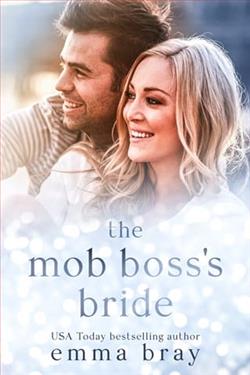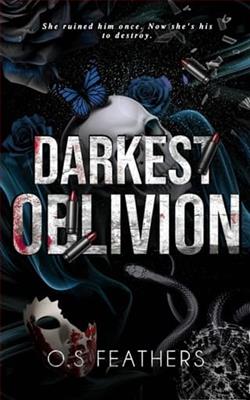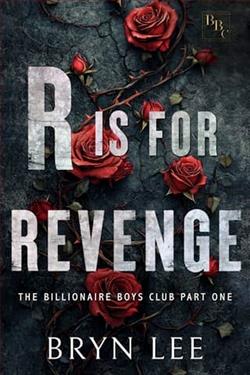Page 28 of Beloved Enemy
There was only one bed, narrow and lifted off the ground on a crude timber frame, which Una shared with her three children. Once more, Charlotte was gratified for the breacan Reid had shared, hoping he never wanted it back. Una had supplied what essentially was a huge pillow case, instructing Charlotte on their first evening together to fill it with straw. After several awkward questions, all of which revealed Charlotte had so much to learn about this time (making her more certain that she was desperate to get home to her time), Una had explained that she would need to collect the straw herself.
That had taken hours, most of which Charlotte spent wandering around fields and meadows, collecting anything thateven remotely resembled straw or grass, being careful to make sure it was all bug free.
It was not comfortable; she might as well have been sleeping on the ground for how thin and ineffective was the stuffing. Each morning, she rolled up her pallet and tucked it under the bed, which meant that she had to scan the bedding carefully each evening—in the poor lighting—to make sure it hadn’t accumulated any bugs during the day.
On that first day, Una had shared with her one of her gowns and a long linen slip, both of which she was still wearing now. The slip, or a chemise Charlotte guessed it might be, was surprisingly soft, in a natural tone of creamy light brown. The gown was a dark green, similar to an olive tone, and made of what she thought was wool, though it did not have the same soft feel as Reid’s breacan. Una wasn’t heavy at all, but she had born three children, obviously very close together, and was sturdy around the middle and just an inch or so taller than Charlotte so that her frock hung limply on Charlotte’s slender frame. She wished she had a belt or some rope to cinch the waist—not solely because she supposed her present silhouette was very unflattering but because it was rather drafty beneath the droopy gown and chemise, and she was perpetually cold.
Her first day with Una had been decidedly awkward. After Charlotte was garbed in more time-period appropriate clothing, she’d asked Una how she could be helpful.
"The goats need milkin’ at dawn and dusk, if ye've got a steady hand for it,” Una had said. “A guid bit of the milk we keep for the bairns, and the rest we turn to cheese."
“I’m sorry,” Charlotte had been forced to acknowledge, “but I have no idea how to do that.”
"There’s grain to be ground for flour,” Una had said next. “The quern-stone’s out back. It’ll take some muscle, but it’s somethin’ we cannae do without."
Charlotte had shaken her head. “I’m willing to learn, Una, but I don’t know how to do that either.”
After Charlotte was compelled to confess her lack of know-how about sewing, after Una had asked for help mending some garments, she’d suggested to Una, “Maybe I can help with the children. That I know how to do.”
Una had been reluctant—Charlotte didn’t blame her; the woman didn’t know her at all and wasn’t likely to easily give up the care of her children to a stranger—and had suggested instead that Charlotte fetch water.
"We need fresh water several times a day, fetched from the burn, enough for drinkin’ and cookin’. The buckets are just outside. It’s a bit of a walk,” she’d said, shrugging, “but it’s nae too bad.”
“I can do that,” Charlotte had said, pleased to finally find something she was capable of. “Just point to the—did you say burn?”
“Aye, the...” she paused and snapped her fingers as if searching for the English word, “stream, aye? It runs down the hill and spills into the loch. We want the clean water from the burn.”
Charlotte left the cottage, collected the two buckets and set off in the direction given by Una, toward the eastern edge of the village, where the land began to rise towards the surrounding hills. “Follow the path, 'tis well-used, up into the trees.”
Though she’d located the trail and discovered the burn with relative ease, Charlotte was not prepared for how heavy the buckets would be once filled. The return trip took nearly twice as long, Charlotte having to stop frequently to adjust her grip on the rope handles, or simply to give her back a break.
The awkwardness between Una and Charlotte had improved but only marginally since then. Charlotte certainly wouldn’t be winning any popularity contests with Una, who likely believedher to be useless. Though she had learned when to add peat to the fire, and how to stoke it properly to make small or large flames, depending on Una’s need. And because of a child’s natural curiosity, Charlotte had made some headway with Una’s toddlers.
They were sweet, if somber, the oldest possibly not quite four years old, a pretty blonde girl with big blue eyes. Una’s second child was a boy, maybe two years old, with darker hair and an expression that suggested he was about to cry at any minute, though he hadn’t yet. The infant, attached most hours of the day to her mother by a length of linen that kept her secure either at Una’s chest or side, depending on her tasks at any given time, barely made a sound. When she did cry, Una seemed quite adept at ignoring it until she was ready to feed or change or readjust the baby.
Their first evening together, the oldest child, Lilias, had began to move closer and closer to Charlotte, her gaze unblinking. Though Charlotte’s encouraging smile had failed to bring her closer quickly, the little girl had eventually gotten to within a few feet of Charlotte, holding out the skirt of her tiny little dress as she studied Charlotte’s face and hair. After a full minute of a studious examination, the girl had lifted her hand, awkwardly, hesitantly—toward Charlotte, which she’d happily taken in her own.
“'Tis Lilias, that one,” Una said—an odd way to introduce her daughter, Charlotte had thought. “Like as nae, she’s asking ye to take her out to relieve herself.”
“Oh, good,” said Charlotte, who’d had the same need. “Um, where should we do that?”
Una’s frown deepened, clearly not pleased with Charlotte's apparent ignorance of even the most basic aspects of daily life. “Ye go out into the trees,” Una had said, “nae near any water. And ye bury what ye make that’s solid.”
Good Lord in Heaven, thought Charlotte with distaste.
After that, however, Lilias was much less shy around Charlotte and the next morning, the little girl willingly accompanied Charlotte to fetch water and during the afternoon, she sat with Charlotte out behind the cottage, watching as Charlotte ground the grain after a quick tutorial from Una.
They went late each afternoon to the castle, or "the keep" as Una called it, where the great hall functioned as a communal dining room. By Charlotte’s estimate, it was filled with nearly a hundred people, all served a variety of dishes. To her dismay, most of the diners helped themselves with their hands, placing food directly on the table before them and eating with their fingers. Only her acute hunger allowed Charlotte to partake at all. Medieval food, she quickly realized, would take some getting used to. The meat was gamey and tough; the bread, bland and crusty, lacked butter to soften it; and the beans, soggy and swimming in a cream that seemed curdled, did little to improve her opinion of vegetables. Even the fish, which looked perfectly baked, was riddled with so many bones that she eventually gave up on it altogether.
She felt numerous curious stares directed her way, and for much of the meal, she was acutely aware of her cheeks flushing pink under the constant, unsubtle attention.
It was there—and only there—over the first few days with Una, that Charlotte saw Reid, and that, from afar, as she and Una and the children occupied a table at the far end of the hall. Reid occupied a place of prominence at what resembled the head table at a wedding, positioned on a raised platform at the end of the hall, perpendicular to the rows of tables filled with peasants. Beside him sat a young woman—likely his sister, Charlotte guessed—her long braid matching the dark russet hue of Reid’s hair. The young woman appeared quite taken with Tavish, seated on her other side, showering him with attention that hedidn’t seem particularly eager to return. Such a miserable man, that Tavish.
Charlotte couldn’t help it that her gaze wandered often to Reid. He looked every inch a medieval lord, his commanding presence underscored by the way he sat with an air of detached authority. The flicker of candlelight from dozens of candles suspended overhead danced across his brooding features, casting shadows that seemed to deepen the rugged lines of his face. His gaze was often distant, lost in thoughts that Charlotte could only guess at, yet when he did look around, his eyes would sometimes lock onto hers from across the hall.
Each time their eyes met, Charlotte felt a jolt of some unnamed emotion. His stare was intense, almost piercing, as if he was trying to unravel something hidden beneath her surface. It was unnerving, to be scrutinized so thoroughly by a man she barely knew. She often found herself averting her gaze quickly, only to catch him watching her once more from the corner of her eye.
And though she did barely know him, she struggled with what she deemed was his abandonment of her. The way he had seemed to wash his hands of her, thrusting her upon Una with barely a backward glance, left a bitter taste. It was not merely the discomfort of his gaze that troubled her, nor the way her pulse quickened when their eyes met. It was the unsettling reality that Reid was the only person who knew the full extent of her predicament—her journey from another time, her disorientation, and her desperate need for help to get back home—and thus what seemed a rejection stung.















